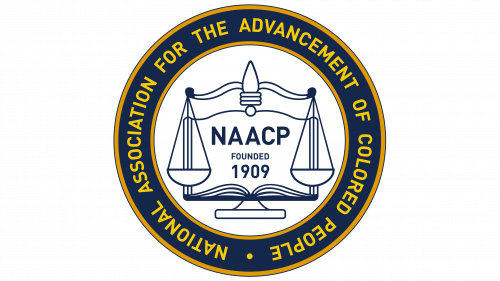
By Reginald S. Webb Jr., California Black Media
On Jan. 7, when the Eaton fire ignited in the foothills of Eaton Canyon in the San Gabriel Mountains. Fueled by wind gusts of 80 to 100 miles per hour and dry weather conditions, the fire forced the evacuation of most of Altadena’s 43,000 residents.
Among them were thousands of Black families and individuals who have lived in the racially diverse hillside suburb for generations. Blacks make up about 18% of Altadena’s population and their homeownership rate of more than 80% far outpaces other places in the state and country.
A few days later, many of the Altadena evacuees returned to smoldering or completely burned down remains of their homes destroyed in raging fires that have killed 17 people, charred over 14,000 acres, and damaged 9,300 homes, businesses, places of worship and more.
Zo Williams, an author, radio host and of Altadena told California Black Media (CBM), “My childhood is gone. The city will forever be changed by this horrific event,”
Like Williams, many of Altadena’s Black residents are confronting the devastating loss they’ve just experienced and exploring what steps they need to take to move forward.
On Jan. 14, the California-Hawaii State Conference of the NAACP held a virtual town hall to advise fire victims on their legal options. The event was organized in partnership with the law firm Singleton Schreiber.
The NAACP and Singleton Schreiber have filed a lawsuit against the power company Southern California Edison. The complaint accuses the power utility of starting the fire due to the company’s failure to take
“adequate precautions” and improper maintenance and management of electrical equipment it owns.
Gerald Singleton, Managing Partner of the law firm, told CBM, “After a disaster occurs sometimes, people don’t know where to go for resources. The NAACP is on the ground guiding people in the right direction.
The NAACP and Singleton Schreiber, the nation’s leading and largest fire litigation practice, have scheduled a second town hall for fire victims on Jan. 21.
“For over a century, the NAACP has shown up for our community in times of crisis, and this is no exception. Altadena – a community deeply rooted in Black history and homeownership – deserves justice,” said NAACP President and CEO Derrick Johnson in a statement.
The lawsuit focuses on victims of the Eaton and Hurst fires who own or rent properties in Altadena and Pasadena. Those fires are two out of six in broader firestorm complex that has caused extensive damage across L.A. County. The others were the Pacific Palisades, Lidia, Sunset and Kenneth fires.
On Jan. 17, a town hall was held at a Pasadena Church in Pasadena. Political and civic leaders, businessowners, grieving residents and more came together to share information, reflect on the past, talk about the way forward and assess the damage from the blaze that CalFire has described as the second most destructive wildfire in California’s history. The deadliest and most destructive fire in California history was the Camp Fire, which broke out in Butte County in 2018, claimed 85 lives and caused damage totaling $16.65 billion.
At the meeting, L.A. County supervisor Kathryn Barger said of the Eaton fire damage, “It looks like a warzone, I’ve never seen anything like it.”
Veronica Jones president of The Altadena Historical Society says, “some of the homes that burned down were over 100 years old. This was a tight knit community linked through generations, and more than half the Black residents were homeowners.”
The Eaton fire destroyed important pieces of Southern California’s Black history. The city of Altadena was one of the first places in Southern California where Black families were allowed to buy homes in the Los Angeles area.
Blacks began moving to the incorporated area in L.A. County as early as the 1920s but their numbers grew from about 4% in the early 1960s after the passage of the Civil Rights and Fair Housing Acts to about 20% in the 1980.
Jones said many famous Black Americans have called Altadena home. Willa Beatrice Brown, the first Black woman to earn both a pilot’s license and a commercial license, lived there. So did Jackie Robinson, the first Black man to play in major league baseball. Octavia Butler, world renowned science fiction writer also grew up in predominately Black neighborhoods in Altadena and Pasadena. And Charles White, one of the most important and socially conscious artists of the 20th century, lived in Altadena on Kent Street in 1959. Two of his most famous works are, “Our War”, and “Mother Courage II”. The city of Altadena named a park after him for his contributions and impact on society called, Charles White Park.
President-Elect of the NAACP-Pasadena Branch Brandon Lamar has started the Dena-Relief Drive. He organized the effort to supply everyday essentials to people impacted by the fires.
“This is a close-knit community of Black Americans who’ve had homes passed down through generations and we want to protect for the generations to come,” said Lamar, who is passionate about residents holding on to their properties and rebuilding.
Some fire victims are reporting that people have already begun to reach out to them trying to purchase their lands and damaged properties.
Pastor Kerwin Manning of Pasadena Church says he didn’t sustain damage to his church or his house but, he and his wife have not been able to return home since they evacuated on Jan. 7. Other members of his congregation were not so fortunate. Seventeen of them lost their homes.
Manning’s church, located at 1515 N. Los Robles Ave. in Pasadena, has become a distribution center for resources going to families impacted by the fires.
Manning says he’s unofficially calling the recovery process, “Operation Beauty Will Rise.”
He quotes Isiah 61:3, “To provide for those who grieve in Zion — to bestow on them a crown of beauty instead of ashes.”


